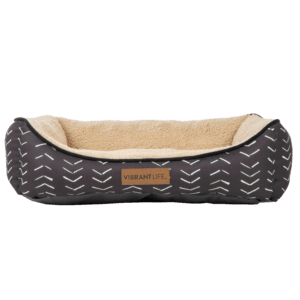You can contact us 24/7 9696775989
The best discounts this week
Every week you can find the best discounts here.
Vibrant Life Luxe Cuddler Mattress Edition Dog Bed, Medium, 27_x21_, Up to 40lbs
Zesty Paws Hairball Bites for Cats, Hairball Treat Supplement, 30 Count
Zesty Paws Hairball Bites for Cats, Hairball Treat Supplement, 30 Count
Dog Morning vs Night Walks Best for Your Dog
Dog Morning vs Night Walks: What’s Best for Your Dog’s Health and Happiness?
Dog Morning vs Night Walks When it comes to walking your dog, the time of day can significantly impact their health and happiness. Morning walks offer the benefits of fresh air and a cool atmosphere, helping your dog start the day with energy and excitement. They can also reduce stress and anxiety, setting a positive tone for the day ahead.
On the other hand, night walks can provide a different experience, allowing for cooler temperatures and fewer distractions. This can be a great time for bonding and exploring the neighborhood under the stars, fostering a sense of security and routine for your furry friend.
Ultimately, the best choice depends on your dog’s needs and lifestyle. Whether you opt for morning or night walks, ensure they are enjoyable and tailored to your dog’s energy levels. At Puup, we understand the importance of these moments, and we’re here to support you in creating the best experiences for your pet.
The best time to walk your Dog Morning vs Night Walks isn’t one-size-fits-all. It often depends on their age, breed, and temperament, as well as environmental factors like weather and schedule compatibility. Here’s a quick guide to help determine when and how to walk your dog for their best health and happiness:
Morning Walks
For active dogs, especially high-energy breeds, morning walks are ideal. They help burn off energy and establish a positive routine for the day. Plus, morning walks are generally cooler, which is beneficial in hot weather.
Afternoon Walks
Afternoon walks may be best for mild, short sessions, especially in cooler weather or if you live in quieter suburban or rural areas. Be cautious in hotter climates, as midday heat can lead to exhaustion or heatstroke.
Evening Walks
An evening walk allows dogs to wind down, relax, and burn any lingering energy. It’s also a time when streets are often quieter, making it great for both shy dogs and those who enjoy a social stroll.
Frequency and Duration
- Young/High-Energy Dogs: 2+ hours a day spread over multiple walks.
- Small/Low-Energy Breeds: 20-30 minutes may suffice.
- Older Dogs: Short, gentle walks adjusted to their health and comfort level.
Additional Tips
- Routine: Consistent timing reduces anxiety.
- Weather Considerations: In hot weather, avoid midday; in winter, late morning or early afternoon may be best.
- Personality Adaptation: Social dogs may prefer busier times, while reserved dogs might enjoy early or late walks.
Ultimately, the best time for your Dog Morning vs Night Walks is one that aligns with their energy level, health, and needs, giving them both mental and physical stimulation while respecting their comfort and safety.


FAQs about Dog Morning vs Night Walks
- Is it better to walk my dog in the morning or evening?
- Morning walks are typically cooler and less crowded, making them ideal for energetic dogs. Evening walks can provide a great way to wind down after a busy day. The best choice depends on your dog’s energy level and your schedule.
- How long should I walk my dog each day?
- Most dogs require at least 30 minutes to 2 hours of exercise daily, depending on their breed, age, and energy level. Tailor the duration to your dog’s specific needs.
- How long should I walk my puppy?
- For young puppies, start with short walks of about 5-10 minutes, gradually increasing the duration as they grow. The general rule is about 5 minutes of walking per month of age, up to twice a day.
- What should I consider when walking a puppy?
- Puppies have developing joints and muscles, so avoid strenuous exercise and stick to gentle walks on soft surfaces. Also, be mindful of their socialization needs; expose them to various environments and experiences safely.
- What are the health benefits of walking my dog?
- Regular walks can help maintain your dog’s weight, improve cardiovascular health, enhance mental stimulation, and strengthen your bond with your pet.
- Can I walk my dog at night?
- Yes, walking your dog at night is perfectly fine. However, make sure to use reflective gear for both you and your dog, and choose well-lit areas for safety.
- What should I bring on a dog walk?
- Essentials include a leash, water for your dog, waste bags, and treats for positive reinforcement. Depending on the length of the walk, you might also want a portable bowl.
- How do I know if my dog is getting enough exercise?
- Signs of adequate exercise include a calm demeanor at home, normal energy levels, and a healthy weight. If your dog seems restless or hyperactive, they may need more physical activity.
- Can walking improve my dog’s behavior?
- Yes! Regular exercise can reduce behavioral issues by alleviating boredom and excess energy, leading to a happier and better-adjusted dog.
- What if my dog is reluctant to walk?
- If your dog shows reluctance, ensure that the collar and leash are comfortable. Start with shorter walks and gradually increase the distance. A veterinary check-up may also be needed if reluctance persists.
- Are there specific breeds that need more walks?
- Yes, high-energy breeds such as Border Collies, Labrador Retrievers, and Australian Shepherds typically require more exercise than low-energy breeds like Bulldogs or Basset Hounds.
- How can I make walks more enjoyable for my dog?
- Vary your walking route, allow time for sniffing and exploring, and incorporate playtime or training exercises to keep your dog engaged and excited about walks.
Keywords:
- dog walks
- Dog Morning vs Night Walks
- morning walks
- night walks
- dog health
- pet happiness
- benefits of morning dog walks
- evening dog walking routine
- health benefits of dog walking
- dog walking tips
- dog exercise ideas
- is it better to walk your dog in the morning or evening
- how morning walks improve dog health and happiness
- best time of day for dog walks for optimal health
- advantages of taking your dog for evening walks
- tips for creating a successful dog walking routine
Recent Posts
Recent Comments
- sinan on Purina Beyond Simply Dry Cat Food Chicken Egg, Grain-Free, 3 lb Bag
- sinan on Purina Beyond Simply Dry Cat Food Chicken Egg, Grain-Free, 3 lb Bag
- sinan on Purina Beyond Simply Dry Cat Food Chicken Egg, Grain-Free, 3 lb Bag
- sinan on Purina Beyond Simply Dry Cat Food Chicken Egg, Grain-Free, 3 lb Bag
- sinan on Purina Beyond Simply Dry Cat Food Chicken Egg, Grain-Free, 3 lb Bag









